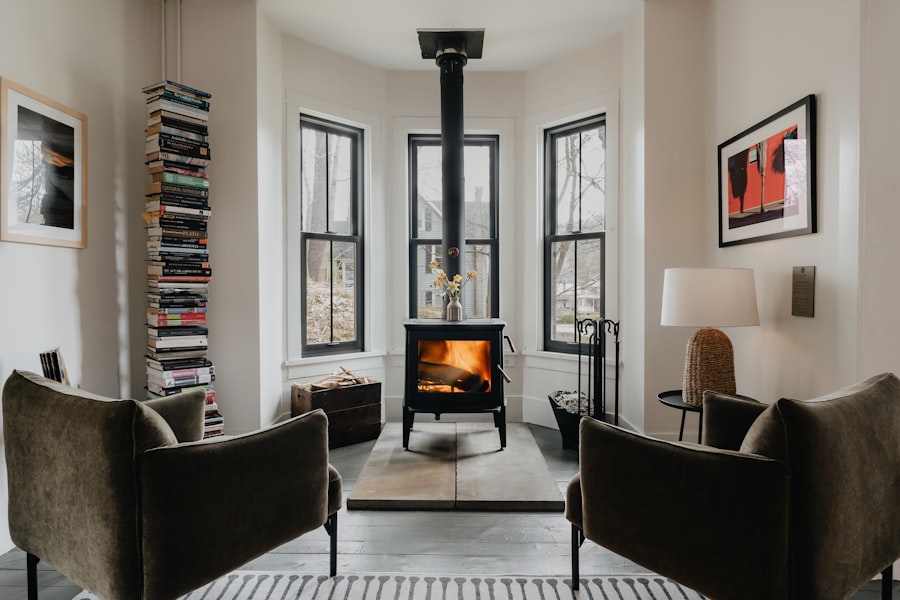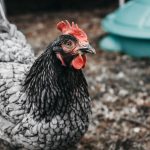Chickens, like all animals, have specific needs for surviving cold weather. Understanding these requirements is essential for maintaining the health and well-being of a flock during winter. Although chickens are generally hardy birds, they remain susceptible to the effects of low temperatures.
When temperatures drop, chickens must conserve body heat to stay warm, necessitating a sheltered and insulated environment for protection from the elements. They also require access to fresh water and warm, nutritious food to maintain energy levels and overall health during colder months. Close monitoring of behavior and health is crucial, as cold weather can increase vulnerability to illness and stress.
Chickens’ feathers provide some insulation against cold, but additional protection from harsh weather conditions is necessary. In low temperatures, chickens can suffer from frostbite on their combs and wattles, which can be painful and potentially lead to infection if left untreated. Extreme cold can also cause hypothermia, which may be fatal if not addressed promptly.
Recognizing the signs of these conditions and taking preventive measures is vital for maintaining flock health in cold weather. Chickens may become less active in cold temperatures, making a comfortable and secure environment crucial for their well-being. By comprehending the specific needs of chickens in cold weather, appropriate steps can be taken to ensure they remain warm, healthy, and content throughout winter.
Table of Contents
- 1 Providing appropriate shelter and bedding for chickens
- 2 Using heat lamps and heaters safely in the chicken coop
- 3 Ensuring proper ventilation in the chicken coop
- 4 Offering warm and nutritious food to chickens
- 5 Providing access to fresh water in freezing temperatures
- 6 Monitoring the health and behavior of chickens during the winter
- 7 FAQs
- 7.1 What are the best ways to keep chickens warm during the winter?
- 7.2 How can I insulate my chicken coop for the winter?
- 7.3 Is it safe to use heat lamps or heated pads for chickens in the winter?
- 7.4 What should I feed my chickens to help keep them warm in the winter?
- 7.5 How important is ventilation in a chicken coop during the winter?
Key Takeaways
- Chickens need extra care in cold weather, as they are susceptible to frostbite and respiratory issues
- Provide a well-insulated coop with dry bedding to keep chickens warm and comfortable
- Use heat lamps and heaters with caution to prevent fire hazards and burns to the chickens
- Ensure proper ventilation in the coop to prevent moisture buildup and ammonia levels
- Offer warm and nutritious food, such as grains and vegetables, to help chickens maintain their body temperature
- Provide access to fresh, unfrozen water at all times to prevent dehydration and keep chickens healthy
- Monitor the health and behavior of chickens regularly to catch any issues early and provide necessary care
Providing appropriate shelter and bedding for chickens
Insulating the Coop
A well-insulated coop is essential for protecting chickens from the cold and keeping them comfortable during the winter months. The coop should be draft-free, but also well-ventilated to prevent moisture buildup, which can lead to respiratory issues in chickens. Insulating the walls and roof of the coop can help retain heat and keep the interior temperature stable.
Bedding for Comfort and Warmth
Providing plenty of bedding, such as straw or wood shavings, can help insulate the floor of the coop and provide a comfortable surface for chickens to rest on. Deep litter bedding can also generate heat as it decomposes, helping to keep the coop warm.
Creating a Sheltered Outdoor Run
In addition to a well-insulated coop, providing a secure outdoor run for your chickens is important for their well-being in cold weather. The run should be protected from wind and precipitation, and providing a covered area where chickens can seek shelter from the elements is ideal. Adding windbreaks or tarps to the sides of the run can help create a more sheltered environment for your flock.
By providing appropriate shelter and bedding for your chickens, you can help them stay warm and comfortable throughout the winter months.
Using heat lamps and heaters safely in the chicken coop

In some cases, especially in extremely cold climates, supplemental heat may be necessary to keep chickens warm during the winter. Heat lamps and heaters can provide additional warmth in the coop, but it’s important to use them safely to prevent fires and injuries. When using heat lamps or heaters in the chicken coop, it’s crucial to follow safety guidelines and use equipment specifically designed for use with animals.
Heat lamps should be securely mounted to prevent them from falling and causing a fire or injuring the chickens. It’s also important to keep them away from flammable materials and ensure that they are positioned at a safe distance from the chickens to prevent burns. In addition to using heat lamps and heaters safely, it’s important to monitor the temperature in the coop regularly to ensure that it stays within a safe range for the chickens.
Using a thermometer can help you keep track of the temperature and make adjustments as needed. It’s also important to have a backup plan in case of power outages or equipment malfunctions. Providing extra bedding and insulation can help retain heat in the coop even if supplemental heat is temporarily unavailable.
By using heat lamps and heaters safely and responsibly, you can provide your chickens with the additional warmth they need to stay healthy and comfortable during the winter.
Ensuring proper ventilation in the chicken coop
While it’s important to keep the chicken coop insulated and draft-free, it’s equally important to ensure proper ventilation to maintain good air quality and prevent moisture buildup. Poor ventilation can lead to respiratory issues in chickens, as well as mold and mildew growth in the coop. To ensure proper ventilation, it’s important to provide adequate airflow without creating drafts that can make the coop too cold for the chickens.
This can be achieved by installing vents or windows that can be opened or closed as needed to regulate airflow. In addition to vents or windows, providing a ridge vent or eave vents can help create a passive ventilation system that allows fresh air to enter the coop while allowing stale air to escape. It’s also important to keep bedding dry and clean to prevent moisture buildup, which can contribute to poor air quality in the coop.
Regularly cleaning out soiled bedding and adding fresh bedding as needed can help maintain a healthy environment for your flock. By ensuring proper ventilation in the chicken coop, you can help prevent respiratory issues and create a comfortable living space for your chickens during the winter months.
Offering warm and nutritious food to chickens
During the winter months, it’s important to provide your chickens with warm and nutritious food to help them maintain their energy levels and stay healthy. Cold temperatures can increase the energy requirements of chickens as they work harder to stay warm, so providing them with high-quality feed is essential. Feeding your flock a balanced diet that includes protein-rich foods such as mealworms or black soldier fly larvae can help them stay strong and healthy during the winter.
Additionally, offering warm treats such as cooked grains or vegetables can provide extra warmth and comfort for your chickens. In addition to providing warm and nutritious food, it’s important to ensure that your chickens have access to food throughout the day. Chickens may eat more in cold weather to maintain their energy levels, so providing ample food at all times is crucial.
It’s also important to monitor their food intake and adjust their diet as needed based on their activity levels and overall health. By offering warm and nutritious food to your chickens, you can help them stay healthy and strong throughout the winter months.
Providing access to fresh water in freezing temperatures

Providing Water in Freezing Temperatures
One way to provide water for chickens in freezing temperatures is by using heated waterers or adding a heated base to their existing waterers. These devices can prevent water from freezing and ensure that your flock has access to water at all times.
Regular Monitoring and Maintenance
In addition to using heated waterers, it’s important to regularly check on your chickens’ water supply throughout the day to ensure that it hasn’t frozen over. Breaking up any ice that forms on the surface of the water or replacing frozen water with fresh water can help ensure that your flock stays hydrated.
Monitoring for Dehydration
It’s also important to monitor your chickens for signs of dehydration, such as reduced egg production or lethargic behavior, and take action promptly if you notice any issues. By providing access to fresh water in freezing temperatures, you can help your chickens stay healthy and hydrated throughout the winter.
Monitoring the health and behavior of chickens during the winter
Monitoring the health and behavior of your chickens is crucial for identifying any issues that may arise during the winter months. Cold weather can make chickens more susceptible to illness and stress, so it’s important to keep a close eye on your flock and take action if you notice any signs of trouble. Regularly checking on your chickens for signs of illness or injury, such as lethargy, reduced appetite, or abnormal behavior, can help you address any issues before they become more serious.
In addition to monitoring their physical health, it’s important to pay attention to your chickens’ behavior and overall well-being. Cold weather can affect their mood and activity levels, so observing how they interact with each other and their environment can provide valuable insight into their overall health. Providing enrichment activities such as hanging treats or toys in the coop can help keep your flock active and engaged during the winter months.
By monitoring the health and behavior of your chickens during the winter, you can identify any issues early on and take steps to ensure that they stay healthy and happy throughout the season. In conclusion, caring for chickens during cold weather requires a combination of understanding their specific needs, providing appropriate shelter and bedding, using heat lamps and heaters safely, ensuring proper ventilation, offering warm and nutritious food, providing access to fresh water, and monitoring their health and behavior closely. By taking these steps, you can help your flock stay warm, healthy, and happy throughout the winter months.
If you’re looking for tips on how to keep chickens warm during the winter, you might also be interested in learning how to convert a shed into a chicken coop. This article provides helpful information on creating a cozy and insulated space for your feathered friends to stay warm during the colder months.
FAQs
What are the best ways to keep chickens warm during the winter?
Some of the best ways to keep chickens warm during the winter include providing a well-insulated coop, using heat lamps or heated pads, and ensuring good ventilation while avoiding drafts.
How can I insulate my chicken coop for the winter?
You can insulate your chicken coop for the winter by adding extra bedding, sealing any drafts, and using insulating materials such as foam board or straw bales.
Is it safe to use heat lamps or heated pads for chickens in the winter?
It is safe to use heat lamps or heated pads for chickens in the winter as long as they are installed properly and monitored regularly to prevent any fire hazards.
What should I feed my chickens to help keep them warm in the winter?
Feeding your chickens a balanced diet with plenty of protein and carbohydrates can help keep them warm in the winter. You can also provide warm oatmeal or other warm treats to help them stay cozy.
How important is ventilation in a chicken coop during the winter?
Ventilation is crucial in a chicken coop during the winter to prevent moisture buildup, which can lead to frostbite and respiratory issues. Good ventilation helps maintain a healthy environment for the chickens.
Meet Walter, the feathered-friend fanatic of Florida! Nestled in the sunshine state, Walter struts through life with his feathered companions, clucking his way to happiness. With a coop that’s fancier than a five-star hotel, he’s the Don Juan of the chicken world. When he’s not teaching his hens to do the cha-cha, you’ll find him in a heated debate with his prized rooster, Sir Clucks-a-Lot. Walter’s poultry passion is no yolk; he’s the sunny-side-up guy you never knew you needed in your flock of friends!







